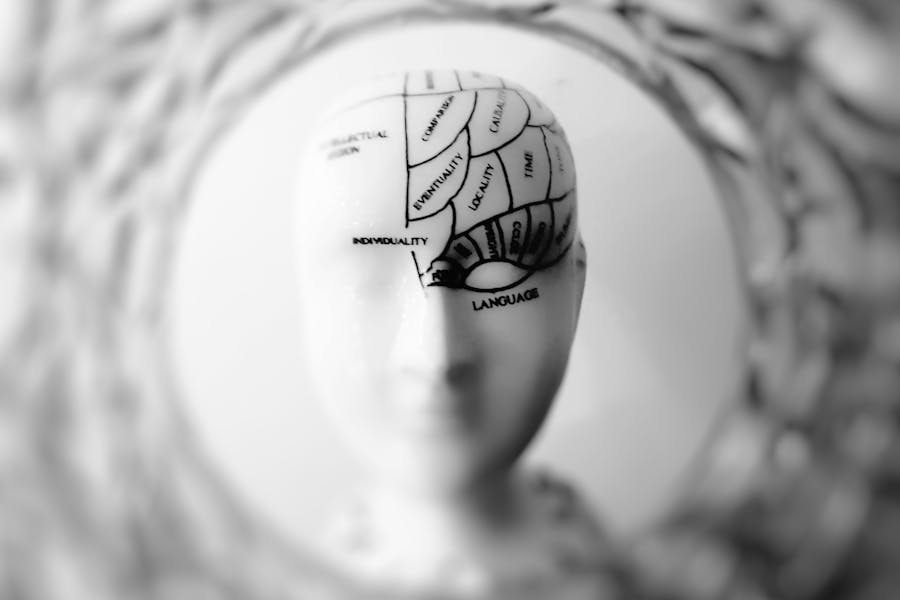You’ve probably heard the term leaky gut before — but have you ever heard of leaky brain?
It might sound strange, but just like your gut has a protective barrier that keeps harmful substances out of your bloodstream, your brain also has its own shield: the blood-brain barrier (BBB). This barrier is your brain’s security system, allowing in essential nutrients while keeping out toxins, pathogens, and other harmful invaders.
But when this barrier becomes too permeable — or “leaky” — it can lead to inflammation and a cascade of health issues that affect not just your brain, but your entire body.
Let’s break it all down: what causes a leaky brain, what symptoms to look for, and most importantly, how to support and protect your brain starting today.
What Is “Leaky Brain”?
Leaky brain happens when the blood-brain barrier becomes compromised. This allows substances like toxins, heavy metals, pathogens, or even undigested food particles to seep into your brain tissue. Once that happens, the immune system kicks into high gear, triggering inflammation — and that’s where things get tricky.
Chronic brain inflammation has been linked to a wide range of symptoms and conditions, including:
- Brain fog and memory issues
- Mood swings, anxiety, and depression
- Fatigue
- Poor focus and concentration
- Insomnia
- Hormonal imbalances
- Neurological conditions like Alzheimer’s or Parkinson’s
- Autoimmune flare-ups
Even gut issues and joint pain can be tied to brain inflammation — because your gut and brain are deeply connected through what’s known as the gut-brain axis.
What Causes a Leaky Brain?
Your brain is under attack every day from a variety of sources. Some of the biggest culprits include:
1. Environmental Toxins – From pesticides in food to heavy metals in water, our bodies are constantly exposed to chemicals. One especially concerning toxin is glyphosate — a chemical found in many weed killers and even in popular cereals. Glyphosate and other toxins can sneak past the blood-brain barrier, triggering inflammation and disrupting brain chemistry.
2. Electromagnetic Fields (EMFs) – Cell phones, WiFi routers, Bluetooth devices — these all emit EMFs. While you can’t see them, EMFs can disrupt your nervous system and potentially damage the brain’s protective barrier. Nighttime exposure, in particular, may interfere with sleep and natural brain detox processes.
3. Mold and Mycotoxins – Mold isn’t always visible, but its toxic byproducts — known as mycotoxins — can cause significant brain and body inflammation. These toxins are often found in damp homes, hidden plumbing leaks, or contaminated foods like peanuts, corn, or wheat.
4. Chronic Infections & Parasites – Infections like Lyme disease or certain parasites can cross into the brain and alter brain chemistry. These pathogens may trigger neurological symptoms such as anxiety, brain fog, fatigue, or even more serious psychiatric disorders.
5. Food Sensitivities – For many people, certain foods can act like toxins. Common culprits include gluten, dairy, soy, peanuts, and sugar. If your body reacts to these foods, the resulting inflammation can affect both your gut lining and the blood-brain barrier.
6. Blood Sugar Imbalances – High blood sugar, insulin resistance, and type 2 diabetes are major contributors to brain inflammation. In fact, some experts call Alzheimer’s “type 3 diabetes” because of its close connection to glucose dysregulation.
How to Support a Healthy Brain (and Body)
Here’s the good news: there are many simple, natural ways to support your blood-brain barrier and reduce inflammation throughout your body. Think of this as your brain detox toolkit.
Detox and Drainage
Before you can detox your brain, you need to open up your body’s drainage pathways — including the lymphatic system, liver, colon, and cells. When your body is clogged, toxins recirculate. When drainage is flowing, your brain can finally start to heal.
Prioritize Gut Health
Since a leaky brain is often tied to a leaky gut, start with the basics:
- Eat plenty of prebiotic fiber (think garlic, onions, and asparagus)
- Add fermented foods like sauerkraut or kimchi
- Cut back on inflammatory foods (gluten, sugar, processed dairy)
A balanced microbiome can go a long way toward protecting your brain.
Reduce EMF Exposure
Try turning off your WiFi at night, keeping phones out of the bedroom, and switching devices to airplane mode whenever possible. You might be surprised how much better you sleep — and how much clearer your mind feels.
Sleep Is Non-Negotiable
During deep sleep, your brain flushes out waste and toxins via the glymphatic system. Even one night of poor sleep can slow this process, while 7–9 hours of quality sleep supports memory, mood, and overall brain health.
Eat for Your Brain
Choose whole, nutrient-dense foods like leafy greens, colorful veggies, wild-caught seafood, and healthy fats (like olive oil or avocado). Spices like turmeric (curcumin), rosemary, and ginger also have powerful anti-inflammatory effects.
Stay Positive — Literally
Your thoughts matter more than you think. Chronic stress and negative thought patterns can actually weaken the blood-brain barrier. Practices like meditation, deep breathing, journaling, or even therapy can help train your brain to stay in a more healing state.
Consider Smart Supplementation
Sometimes food isn’t enough. Helpful brain-supporting supplements may include:
- Magnesium — helps regulate the BBB
- Berberine — reduces inflammation and supports insulin sensitivity
- Broccoli sprouts — boost detox pathways
- Astaxanthin & olive leaf — antioxidant powerhouses
- B vitamins (especially B6, B9, B12) — support brain chemistry and energy
(Always work with a qualified health practitioner before starting a new supplement.)
Feeling Off Lately? It Might Be Inflammation.
If you’re experiencing brain fog, fatigue, low mood, or even unexplained aches and pains — it’s worth asking whether chronic inflammation is at play. Many people go years without realizing that their symptoms are connected to a deeper issue, like a leaky brain or gut.
Want to find out what’s really going on in your body?
Take the Cellular Inflammation Assessment
Our Cellular Inflammation Assessment is a powerful first step toward understanding what’s going on beneath the surface — and creating a personalized plan to reduce inflammation, detox your brain and body, and reclaim your energy and clarity.
👉 Click here to take the Cellular Inflammation Assessment
Final Thoughts
Your brain is your command center — and it deserves protection. Whether you’re dealing with subtle symptoms or full-blown fatigue, addressing brain inflammation can have a ripple effect on your entire well-being.
Start by taking small, intentional steps. Detox your environment. Feed your body well. Support your gut. And most importantly, listen to what your body is trying to tell you.
You’re not broken — you’re just inflamed. And the good news? Inflammation is something you can reverse.







